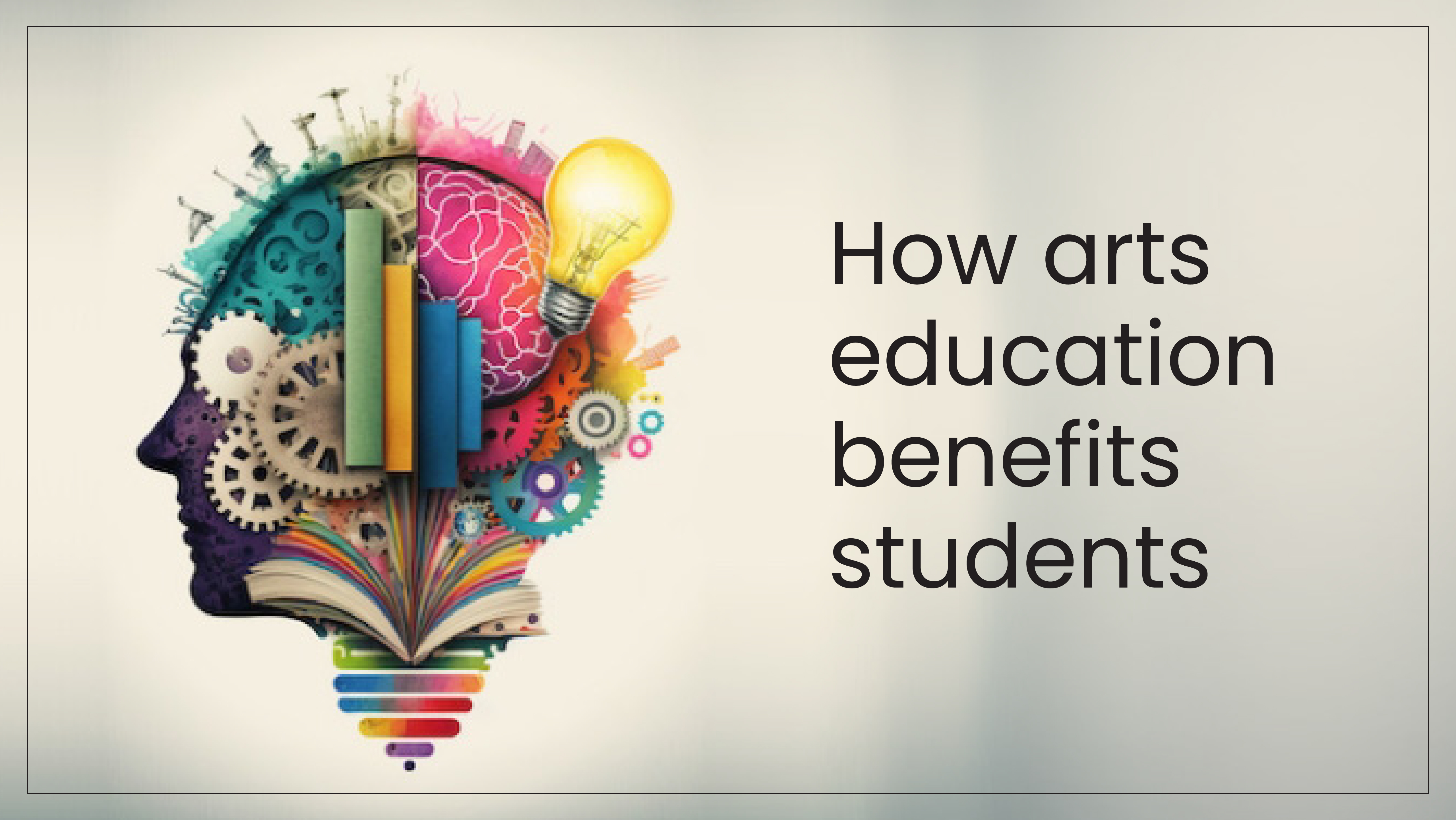Culture refers to beliefs, customs, and arts within a society. Therefore, an arts education is essential for a child’s growth as it shapes their initial understanding of culture. For years, there has been concern that schools worldwide experience budget cuts for arts programs, and there is a noticeable increase in support for STEM (Science, Technology, Engineering, and Maths) subjects.
Nowadays, many schools prioritise arts and make it a focal point in their curriculum. This results in bringing a positive culture and a supportive atmosphere in schools. The students participate in collaborative activities through the use of art. There are numerous benefits of arts education for children; we explain some of them here.
7 Reasons Why Art Education is Beneficial to Childhood Development
Participating in creative activities enables kids to discover their talents and interests while also offering them a range of valuable skills for the long term. Here are some reasons why:
- Creativity and Imagination: One of the most significant benefits of arts education is its ability to nurture creativity and imagination in students. Children are encouraged to think outside the box and express themselves uniquely through artistic activities. This does not just apply to artistic pursuits – these creative thinking skills translate into other areas of life, from problem-solving in maths to approaching writing assignments with a fresh perspective.
- Self-Expression: The arts provide a safe space for students to express themselves freely. It can be painting emotions onto a canvas, composing a song, or performing in a play. Artistic expression allows children to explore their inner world and develop a sense of self. This can be especially beneficial for shy or introverted students who may not feel comfortable expressing themselves verbally. There is no single “right” way to create art as it can be observed and appreciated subjectively. This brings a sense of confidence in students, as they learn to embrace their unique voices and perspectives.
- Sharper Cognitive Skills: Art education is not just about finger painting and singing songs. Many art forms require critical thinking and problem-solving skills. For instance, students learn to read sheet music in music class, strengthening visual-spatial reasoning. In drama, students analyze scripts and develop characters, which enhances their communication and collaboration skills. These cognitive skills are essential for success in all areas of academic life. Studies have shown that students involved in the arts often perform better in other subjects as well.
- Cultural Awareness: The arts offer a window into different cultures and historical periods. By studying and creating art from diverse backgrounds, students develop a deeper understanding of the world around them. Exploring music, dance, and visual art from various cultures fosters empathy and appreciation for different perspectives. Art education can help break down cultural barriers and promote a more inclusive and understanding society. Students learn to appreciate the beauty and richness of different cultures, fostering global citizenship.
- Improved Academic Performance: Many people consider arts education as an elective or a break from core subjects. However, research suggests the opposite. Studies have shown that students involved in the arts often demonstrate improved academic performance in other subjects as well. Why is this? Art education strengthens critical thinking and communication skills – all essential for success in all areas of academics. Additionally, the arts encourage perseverance and discipline, which are vital skills for tackling challenging academic tasks. So, every school should create cultural awareness with arts education for the overall betterment of students.
- Motor Skills and Visual Learning: Many art forms are hands-on, which requires students to develop their fine motor skills. This is especially beneficial for young children as it helps with coordination. Activities like sculpting, drawing, and playing musical instruments all contribute to the development of fine motor skills. Art education also strengthens visual learning skills. Students learn to analyze visual information and interpret visual data. These skills are crucial for success in subjects like science and maths, where visual representations play a significant role.
- Teamwork and Collaboration: Many art forms are inherently collaborative. Theatre productions require actors, directors, and set designers to work together. Music ensembles necessitate teamwork among musicians. Students learn to communicate effectively and appreciate the value of teamwork through these collaborative experiences. Art education teaches valuable social skills that benefit students throughout their lives. They learn to listen to others’ ideas and celebrate the contributions of their peers.
Overall, the benefits of arts education extend far beyond the development of artistic skills. Art education makes students well-rounded individuals with strong critical thinking and communication skills. These skills are essential for success in academics and life in general. By incorporating a strong arts program into schools, we can nurture a generation of future leaders who appreciate the beauty and diversity of the world around them. Let us make sure that the arts remain an essential part of a well-rounded education for all students.
Join Our Creative Community!
🎨 Stay Inspired: Follow us on Instagram for daily tips, artwork, and stories that celebrate the power of arts in education.
💬 Let’s Connect: Join our Telegram Channel for exclusive insights, resources, and a community of like-minded parents and educators.
Unlock your child’s creative potential with us!
